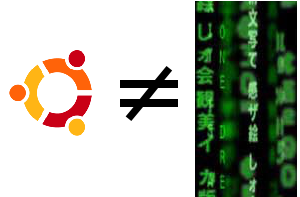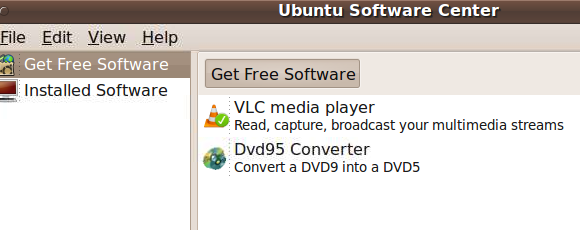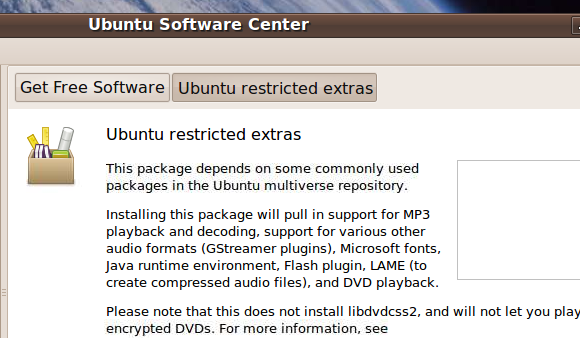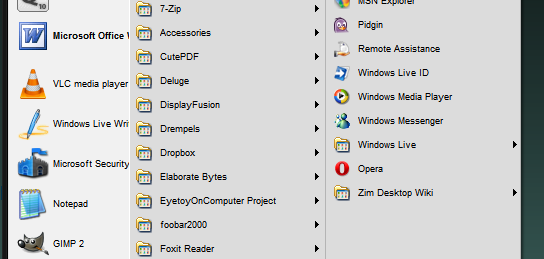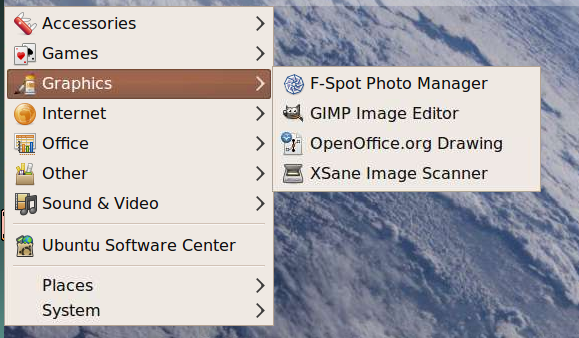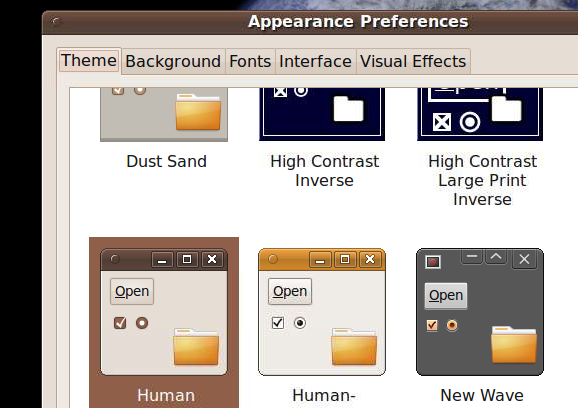When the average computer user hears about Ubuntu or Linux, the word "difficult" comes to mind. This is understandable: learning a new operating system is never without its challenges, and in many ways Ubuntu is far from perfect. I'd like to say that using Ubuntu is actually easier and better than using Windows.
This doesn't mean you'll experience it that way if you've used Windows for a long time: at a certain your habits begin to feel like conventional wisdom, and any system that doesn't match your current habits will seem difficult.
If you're a MakeUseOf reader, however, you're undoubtedly a fan of free software. Most of the very best free software is open source. If you're a Windows user who primarily uses free software, Ubuntu's going to feel more comfortable to you than Windows once you get used to it. And once you do get used to it, you'll realize that in some ways Ubuntu is simply better than Windows in terms of ease of use.
Don't believe me? Here are some examples.
Finding & Installing Software
There's a misconception out there that installing software on Ubuntu, or any Linux platform, requires a PhD in Computer Science. Nothing could be further than the truth; in fact, I'd argue installing software on Ubuntu is a great deal easier than installing software on Windows.
Let's examine the typical installation scenario for Windows users. Pretend there's a person named Sally, and that Sally wants to install VLC Media Player. Sally Googles the name of the program, finds a webpage related to it, browses that page until she finds a download for Windows before finally downloading an executable file.
Assuming Sally is pretty tech-savvy, she verifies that the site she downloaded from is a proper place; if not, it could come from anywhere and be infected with any number of spyware, trojans and/or AOL toolbars. Once the file has finished downloading, Sally double-clicks the executable she just downloaded, tells Windows it's okay to install the program, then follows the series of prompts and clicks "next" several times.
Now let's pretend Sally is an Ubuntu user. To install VLC, all she needs to do is click "Applications," then "Ubuntu Software Center" then search for "VLC", double-click VLC and click the "Install" button at the bottom of the description. She'll enter her password and then Ubuntu will download and install VLC for you, letting Sally know when it's done.
Best of all: because the software is all coming from one place, and not some random website, you know with complete certainty that the file doesn't include any spyware or trojans.
In my opinion, Ubuntu's method of installing software is far simpler than Windows when compared side by side. The main reason people new to Ubuntu have trouble installing software is because they try to apply the Windows method to Ubuntu, searching the web for programs to download instead of consulting the Ubuntu Software Center first. Packages found online could indeed be very hard to install, but considering the Ubuntu Software Center gives you access to thousands of programs there's very little reason to ever bother with it.
Initial Setup
When I first install a computer, there are certain things I want installed right away: codecs for all my music and movies, Flash for my web browser, Java, and something capable of opening RAR files. On Windows, ensuring I have all of these things means going through the process above for all software mentioned individually. On Ubuntu, all I need to do is install a single package: Ubuntu Restricted Extras. To install Ubuntu Restricted Extras I simply open up the Ubuntu Software Center, search for "Restricted" and find the package.
Click the install button, and with that simple step my computer is pretty much ready to go.
It should be added that on Windows systems I usually have to install a PDF Reader and a photo editor before I can really use the system, but Ubuntu comes with a PDF called Evince Reader and a photo editor called The Gimp by default.
Installing Drivers
This point is perhaps less relevant for users of Windows 7, which offers pretty good driver management through Windows Update, but it needs to be said that managing drivers on Ubuntu is a breeze. Since Ubuntu is upgraded every 6 months, if you use the latest version you probably won't need to install a single driver to use your computer. If you do, it will be because the drivers you need are proprietary and as such cannot be included with Ubuntu for legal reasons.
Don't worry, though: Ubuntu comes with a built-in program for downloading such proprietary drivers for your system. The first time your computer boots Ubuntu, it will inform you of any drivers you need, and install them for you with the click of a button.
I fix Windows PCs professionally, and wish XP had a similar feature. If my client has his or her driver CD it's not too bad, but if not I've little recourse but to download the drivers the annoying Windows way, as described in the "Installing Software" section.
Using The Menu
While we're talking about installing software on Windows compared to Ubuntu I'd be remiss if I didn't point out my Windows pet peeve. When I install a program on Windows, it is added to the Start Menu. Where is the program added? In a folder named for the company that made the software.
This is infuriating to me, because knowing which program made the software doesn't tell me what the program in question does. There are so many sub-menus that I frequently don't know where to begin. Compare this mess to Ubuntu's menu, which arranges programs by what they do:
Only five sub-menus, and all with a certain logic to them.
To be fair, the Start menu in Vista/Windows 7 is a little better than this in that I can search for a program. This means I can avoid ever looking at the terrible menu ever again. But this seems more like working around the issue instead of repairing it.
Changing Your Theme
Changing your color scheme on Windows is easy, but if you want to customize beyond changing the palette some work is in order. I use a custom theme on my Windows XP system, but installing it was anything but easy. I needed to hack a certain DLL to achieve this, something I should probably highlight in a future tutorial.
I'll never need to write a tutorial explaining how to do this on Ubuntu, however, because it's dead simple. Just click "System," then "Preferences," then "Appearance." You'll be shown a number of quality themes, and switching to any one is as easy as clicking it. If these themes aren't enough for you, head over to Gnome-Look and find something that suits you. Installing the theme is as simple as dragging the downloaded package to your "Appearance" window.
I should make a confession here: I've never attempted to do this in Windows 7. By the looks of Karl's article about the top 5 Windows 7 themes, customization is now Ubuntu-like in Windows 7. Good to hear!
Getting Updates
When it comes to updates, Windows is a jungle. Adobe, Apple, Google and many more companies will all install their own update managers to your computer, most of which will bother you every time you boot your computer asking you to update various products.
On Ubuntu, there is only one update manager. This means keeping all your software up to date is simple, and that you don't have 30,000 programs bothering you every time you boot your machine.
Sharing Your Wireless Connection Via Ethernet
Recently I wrote an article about sharing your wireless connection in Ubuntu. Since then I've switched the computer on my desk to Windows, and I cannot for the life of me figure out a way to achieve the same thing. Maybe you commenters can help me out, but every configuration I've used to share my wireless Internet connection via Ethernet in Windows resulted in my wireless not working anymore.
So I'm going to go ahead and say this is easier to do in Ubuntu, half because it's true and half because I think this will cause one of you guys to recommend a Windows method that works for me.
Conclusion
In many ways, Ubuntu is easier to use than Windows. Does this mean Ubuntu is superior to Windows? Of course not, and I wouldn't suggest so. You should use whatever operating system works best for you.
All I wanted to do was challenge the conception that Windows is easier to use in every aspect. Ubuntu has become easier to use every year, and I think even inspired a few of the changes in Windows 7 (I'd love to see a Windows 7 ad in which a Linux developer claims Windows 7 was his idea, because unlike the people in those silly advertisements the Linux developer would probably be right.) This isn't a bad thing: competition makes everything better. Whenever new improvements are introduced to the operating system market, eventually everyone wins.
Please also note that most of the things described here are true of other Linux distributions as well, and the only reason I left these distributions out is that saying "before you install Linux you must choose from the thousands of distributions out there" hardly helps the argument that Linux is easy to use. For the vast majority of new Linux users Ubuntu is an excellent starting point, and that's why I'm highlighting it here.
What do you guys think? Do these things sound easier to do on Ubuntu than Windows to you? Can you think of anything else easier in one operating system than another? We have a comments section, so comment!

